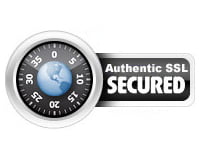Sunline Transit, a public agency providing bus service throughout California’s sprawling Coachella Valley, will received a $12.5 million grant from the state Friday to fund five new zero-emission hydrogen fuel cell buses and upgrades to the agency’s existing hydrogen production plant.
The buses will operate in a region that is known for the cities of Palm Springs and Indio and the Coachella Valley Music and Arts Festival.
The project, represents one of the largest single deployments of fuel cell buses in the nation.
A joint program by the Orange County and Alameda-Contra Costa county transit agencies to field 20 fuel cell buses, half in southern California and half in the San Francisco Bay Area, is the largest. That project, announced in February, received $25.3 million in state and local grants.
The two projects will nearly double the number of fuel cell buses in use throughout the U.S. Most are in California, which actively promotes development of zero-emission vehicles though the nation’s toughest air quality regulations.
“Fuel cell vehicles are a part of a comprehensive portfolio needed to achieve California’s long-term greenhouse gas reduction goals,” Mary Nichols, the state’s chief air quality regulator, told Trucks.com. Fuel cell trucks such as Toyota’s prototype Class 8 hydrogen semi-truck unveiled at the Port of Los Angeles earlier this week are another part of that portfolio.
The SunLine project “furthers this technology advancement while providing much-needed air quality benefits to communities in the Coachella Valley,” Nichols said.
The state money for the bus programs comes from the California Air Resources Board, which Nichols heads. The agency parcels out funds generated by the state’s periodic auctions of carbon credits under its CO2 cap and trade program. The grants typically are accompanied by varying levels of matching funds from the recipients.
The SunLine project will enable the desert-area transit agency to augment its fleet of buses with five new 40-footers built by New Flyer Industries and equipped with a fuel-cell electric propulsion system from Canadian fuel cell developer Hydrogenics. The buses are scheduled to be delivered in 2018.
SunLine has been testing fuel-cell buses since 2010 and presently has three in its fleet.
While more expensive to purchase than battery-electric buses, fuel-cell buses have advantages for some fleet operators because they can travel long distances, 300 miles and more, on each fill-up of hydrogen, and they can be fueled as quickly as a diesel bus. Battery-electric models need lengthy recharging sessions although range-enhancing systems such as rapid recharging stations at bus stops for quick top-ups is under development.
The cost of fuel-cell buses now averages about $1.3 million, but that’s down from an average of almost $2.2 million in 2008, when they were introduced.
The industry goal is to lower prices to about $600,000 per bus, competitive with other types of low-emissions transit buses, through increased production and related economies of scale, said Nico Bouwkamp, technical program manager for the California Fuel Cell Partnership, a nonprofit government-industry coalition.
Grants for programs such as the SunLine and the Orange County-Alameda County projects help encourage production and development that can lead to lower costs, Bouwkamp said.
To date, there are only 20 fuel cell buses in service in California and just under 30 nationally, he said. But more than 30 new fuel cell buses, including the 25 in the two Air Resources Board-funded programs, are expected to be deployed in the state by the end of 2018.
Early fuel cell buses were cobbled together by aftermarket companies that acquired empty bus shells from manufacturers such as New Flyer and then added fuel cell systems and hydrogen tanks.
But New Flyer, a Canadian company with several manufacturing U.S. facilities, now has begun making the buses itself. It is one of two companies doing factory-build fuel-cell buses, said Bouwkamp. The other is California-based ElDorado National, according to the fuel cell partnership.
In addition to the five buses, the SunLine grant provides funding to help pay for installation of a hydrogen production facility powered by renewable fuels. California requires that at least a third of the hydrogen used for transportation in the state be produced with renewables such as solar electricity.
SunLine’s present plant uses a heat-reformation process that breaks down methane – the principal ingredient of natural gas – and strips out its hydrogen content. The upgrade will add an electrolysis system that separates hydrogen from oxygen in water, using solar energy and purchased electricity from renewable sources.
To augment the state grant, SunLine is adding $5.2 million in cash and in-kind services including $2.75 million from the Federal Transportation Administration.
Grant program rules prioritize improving clean-emissions transportation availably in economically disadvantaged communities. SunLine said that the new buses will serve two routes that will provide transit coverage in 98 percent of the disadvantaged communities in serves.



